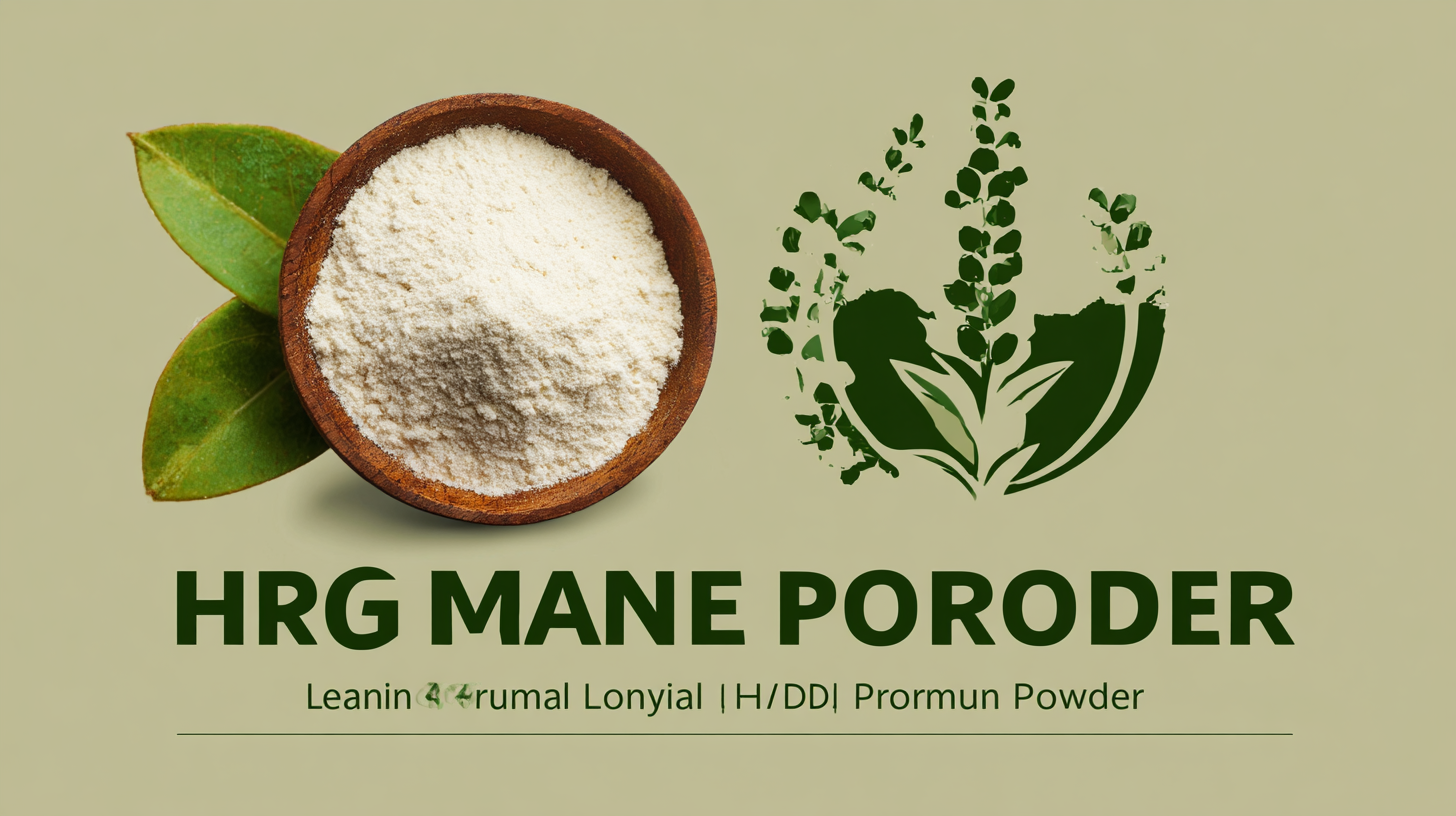In recent years, the demand for Plant Hormone Powder has surged significantly, fueled by the growing awareness of sustainable agriculture and the need for enhancing crop yields. According to a report by ResearchAndMarkets, the global market for plant growth regulators, which includes various hormone powders, is projected to reach USD 5.54 billion by 2025, reflecting a CAGR of 6.7% from 2020. As agriculture increasingly turns to innovative solutions to combat challenges such as climate change and food security, understanding and leveraging the right strategies becomes paramount for manufacturers.

Leading producers in this space have been at the forefront of developing premium plant hormone powders that not only optimize plant growth but also align with eco-friendly practices. This blog explores the top strategies employed by these global manufacturers to efficiently meet the surging market demand while ensuring sustainable agricultural practices.
The landscape of agriculture is on the brink of transformation, thanks to the latest advancements in plant hormone technology. As we approach 2025, several key innovations are set to revolutionize how crops are cultivated and maintained. Among these advancements is the development of highly concentrated plant hormone powders designed to enhance growth, increase yield, and improve stress resistance in plants. These potent formulations allow for targeted applications, minimizing waste and maximizing effectiveness, which is crucial for sustainable farming practices.
Another significant innovation is the integration of biotechnological methods in the production of plant hormones. This includes the use of genetically modified microorganisms that can produce hormones more efficiently and at a lower cost. As a result, these technologies not only ensure a consistent supply of high-quality hormones but also contribute to reducing environmental impact by cutting down on harmful chemicals traditionally used in agriculture. With these breakthroughs, farmers can expect healthier crops and more resilient systems that meet the growing global food demand while adhering to ecological standards.
The global market for premium plant hormone powders has witnessed a remarkable surge in demand, driven by the increasing awareness of sustainable agriculture practices and the growing need for high-quality crop yields. Farmers and horticulturists are now more focused on optimizing plant growth and resilience, leading to a significant rise in the utilization of these specialized products. With advancements in research and technology, manufacturers are continuously innovating their formulations to enhance efficacy, making premium plant hormone powders an essential tool for modern agriculture.
This booming demand is not limited to a specific region; it reflects a global trend as more farmers recognize the benefits these hormones provide in terms of plant health and productivity. Key factors influencing this growth include the rise of organic farming, government support for eco-friendly practices, and an increase in the cultivation of high-value crops. As the market evolves, manufacturers are adapting their strategies to cater to diverse agricultural needs, ensuring that they stay ahead in this competitive landscape. The future of premium plant hormone powders looks promising as more stakeholders embrace these solutions for sustainable agricultural development.

The impact of agricultural practices on the applications and effectiveness of plant hormones is increasingly critical in developing sustainable agriculture. Recent studies have highlighted how exogenous applications of phytohormones can significantly enhance crop resilience against abiotic stresses such as drought and salinity. For instance, the utilization of biostimulants derived from natural sources, such as Ascophyllum nodosum, has been shown to bolster plant growth and improve nutrient uptake, ultimately leading to increased agricultural productivity.
Tips: When incorporating plant hormones, consider integrating them with sustainable practices such as green manure application. This organic method not only enriches soil nutrients but also optimizes the rhizosphere microbiota, which is crucial for plant health. Research indicates that such integrative approaches can enhance crop resilience and yield.
Additionally, leveraging advancements in nanotechnology, such as bionanofertilizers, can provide an eco-friendly alternative to traditional fertilizers. These innovative solutions have been proven to enhance nutrient uptake efficiency and stimulate plant growth more effectively while minimizing chemical dependencies. Regularly evaluate the effectiveness of these methods to optimize agricultural output and sustainability.
In today's rapidly changing agricultural landscape, sustainability trends are becoming increasingly crucial, especially in the production of plant hormones. With climate change posing significant challenges to global agricultural yield, the role of plant-growth-promoting microorganisms (PGPM) is gaining attention. Research has shown that these microorganisms can enhance plant resilience under environmental stress, such as salinity and extreme weather conditions. For example, studies indicate that using specific PGPM can improve crop tolerance, enabling better nutrient uptake and overall plant health.
To further enhance sustainability in agriculture, the application of biofertilizers—living microbes that boost nutrient availability—has emerged as a pivotal solution. The integration of phytohormones in crop management is also being explored for its ability to advance plant growth and defense mechanisms. Recent findings suggest that utilizing these organic substances can significantly improve yields while minimizing chemical inputs.
**Tip:** Farmers looking to embrace eco-friendly practices should consider incorporating biochar as a carrier for plant-growth-promoting bacteria. This combination not only aids in pesticide phytoremediation but also enhances soil quality, which is essential for sustainable agriculture.
**Tip:** It's crucial to stay updated with the latest microbial technologies that enhance crop nutrition and resilience. By leveraging modern microbiology, agriculturalists can improve their practices to cope with climate-induced challenges effectively.
| Dimension | 2021 | 2022 | 2023 |
|---|---|---|---|
| CO2 Emission Reduction (%) | 10% | 15% | 20% |
| Use of Organic Raw Materials (%) | 40% | 50% | 60% |
| Water Usage Efficiency (liters/kg) | 500 | 450 | 400 |
| Percentage of Renewable Energy Used (%) | 30% | 35% | 40% |
| Customer Satisfaction Rate (%) | 85% | 88% | 90% |
The plant hormone industry is undergoing a revolutionary transformation as artificial intelligence (AI) and data analytics take center stage. By harnessing the power of advanced algorithms and machine learning, manufacturers are able to analyze vast amounts of agricultural data to understand plant behavior better than ever before. This integration not only enhances the efficiency of hormone production but also promotes tailored solutions for farmers, ensuring optimal crop yields and health.

As data-driven decisions continue to dominate the landscape, the use of predictive analytics becomes crucial. Companies can now forecast plant growth responses to specific hormonal treatments, adjusting formulations to meet the unique needs of different crops. Moreover, AI-driven insights empower manufacturers to optimize their supply chains, reducing waste and operational costs. This synergy of technology and agriculture promises a future where every plant receives precisely the hormones it requires for maximum productivity, marking a significant leap forward in sustainable farming practices.
